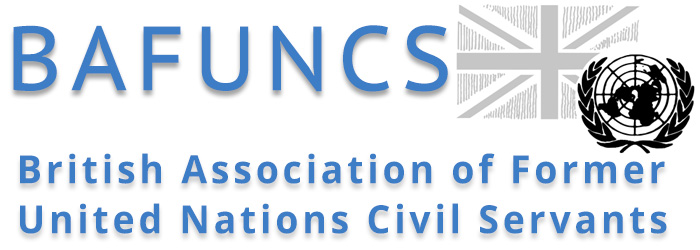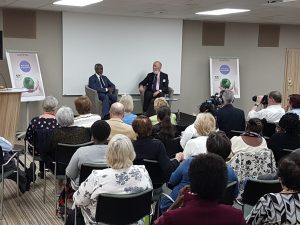The Association is guided by its Constitution and consists of several principal elements:
A General Assembly of its members, effectively the Association’s Annual General Meeting, which is now held virtually once a year. The virtual arrangement makes it easier for members to attend, contribute to and vote on items of the General Assembly. The Annual Reunion (AR) is held annually separate from the General Assembly and is presided over by the President of the Association.
An Executive Committee, members of which are elected at the General Assembly and serve for the following year. It comprises four national office holders and six general members and can co-opt additional members as necessary. It meets at least four times each year
Ten regions, which are geographically defined and self-administering, with their own elected committees and regional activities. They receive a modest annual subvention from the Executive Committee
The BAFUNCS Benevolent Fund, a charity registered with the Charity Commission, which runs independently of the main Association but whose Trustees are appointed by the Executive Committee
It also supports two other activities:
The United Nations Career Records Project (UNCRP), a longstanding partnership with the Bodleian Library of Oxford University which encourages former United Nations System staff to reflect on their careers and to contribute to an archive of documents and recollections for the use of students and researchers.
Membership of the Federation of Associations of Former International Civil Servants (FAFICS), which links BAFUNCS to its sister associations around the world and makes common cause in terms of United Nations pensions, medical insurance, etc.
The Association does not maintain a central office, although it is able to use the offices of the International Maritime Organization (IMO) in London for committee meetings and its mailing address: 4 Albert Embankment, London, SE1 7SR. Otherwise, its officers work on a voluntary basis from their own homes. Contact with the Association is best made to individual members of the Committee (please see the Contact page for details). They will undertake to ensure that the most appropriate person on the Committee will follow up such contacts
BACK TO: About Us National Level Regional Level

